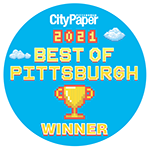FROM THE START: A chat with the co-founder of Hardly
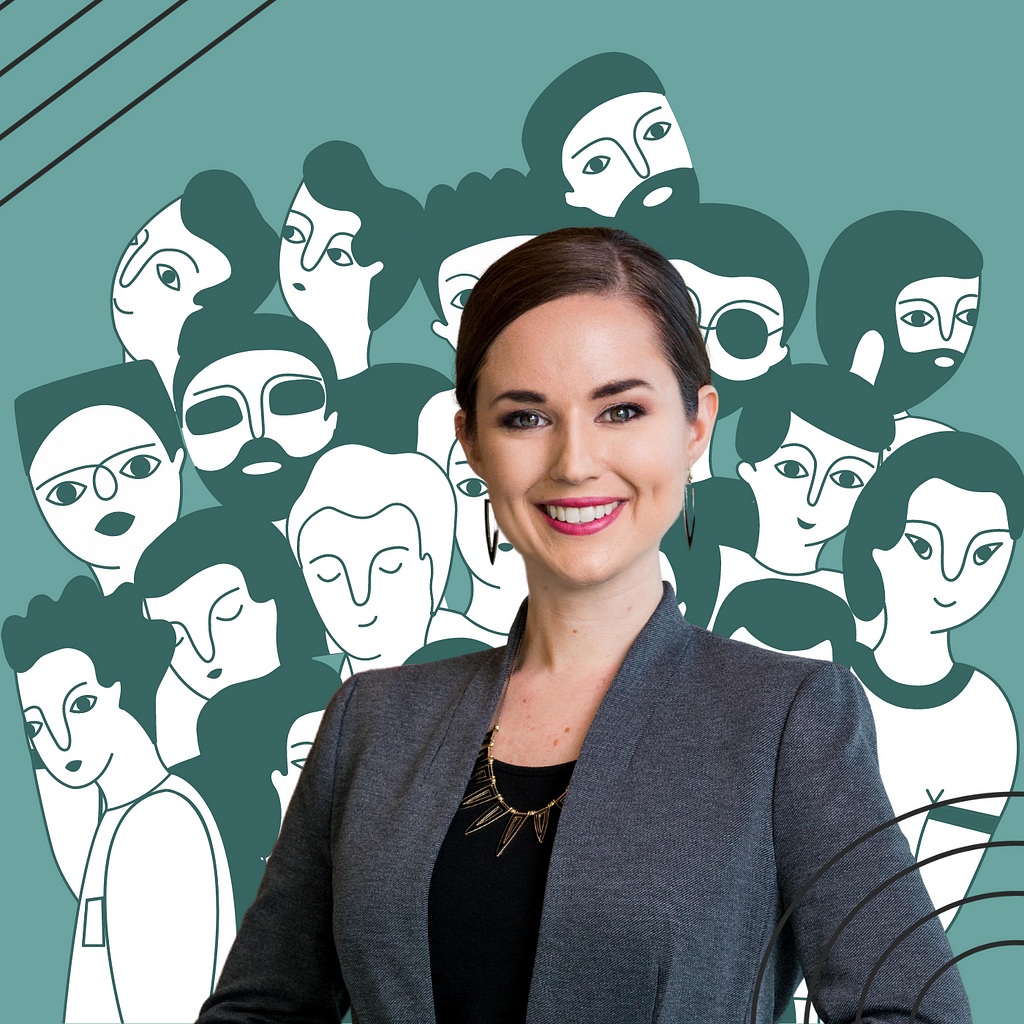
Too often, we learn from other founders only after they’ve “already made it,” but there’s a lot to gain from their journeys as early-stage entrepreneurs. FROM THE START is an interview series with founders from our 2021–2022 Incubator that will trace their startup stories from the beginning, reveal some of the resources helping them overcome the bumps, and point out ways you can help them thrive.
Since joining the Incubator in May, all of the companies have been hustling to get their brands and businesses out there. Now it’s time to get to know them!
Some answers have been edited slightly for brevity.
What’s been the journey that’s led you to start your company?
In 2019 I was completely burned out. After seven years of working in NYC, getting two master’s degrees, and managing 10–15 clients simultaneously, I realized something had to change. Over the years, I’d had three panic attacks, massive weight fluctuations, insomnia, and depression. I didn’t realize it at the time, but I was on a deadly path. I wanted to prevent burnout for others, and a lot of that is matching the individual to the culture that will fit their needs.
Roger [Hardly co-founder] and I met while in undergrad at Auburn University 10 years ago. We’ve been married for six years. We studied for the GMAT together, and both got into Carnegie Mellon University’s MBA program. I’m the big-idea person and marketer, and he’s incredible at follow-through and delivery. While at CMU, I completed the entrepreneurship track, and we both have leadership development certificates and concentrations in organizational behavior.
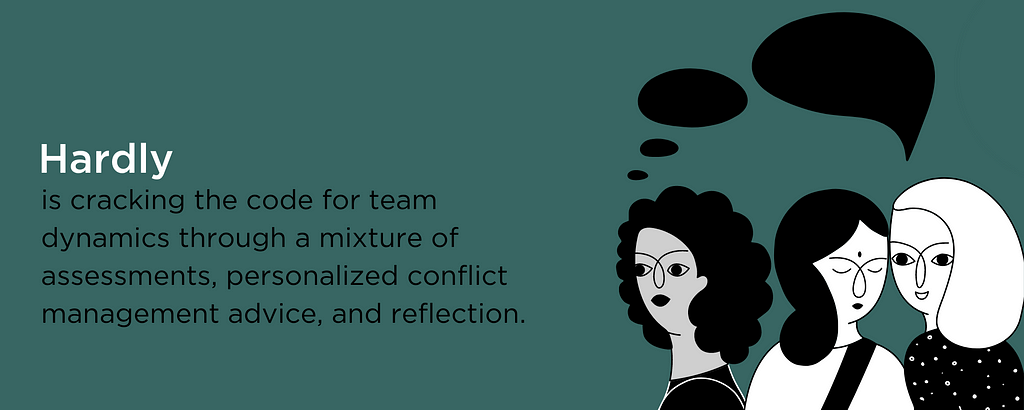
What’s the problem that your business is solving?
The Problem: There is a huge burnout problem for workers, and turnover is insanely expensive and time-consuming for hiring managers.
The Solution: Our app uses universal value assessments developed by cognitive psychologists to match workers to organizations that fit their work-life integration and culture needs. This functions more like a dating app, where the candidate pool has already been narrowed before the HR manager reviews.
The Benefits:
Hiring managers (paying a monthly/yearly subscription):
- Save time + money and increase retention.
- Narrow down the candidate funnel. You’ll only see candidates that will fit your culture.
- Set hiring goals in your company portal to customize the match results to your unique needs.
- A level playing field. Unlike other hiring websites, we charge when you find someone you want to chat with — no competing with bigger budgets to have your chance with awesome candidates.
Workers (free access, but can pay for premium add-ons):
- Find jobs you will truly love, not just be qualified for.
- Take back control over your life by understanding work-life expectations before your first interview.
- Any indication of your race or gender is hidden until the company has reached out to chat.
- No annoying head-hunting. Only chats from companies you want to hear from.
What has helped you overcome the bumps you’ve encountered so far in your entrepreneurial journey?
2021 has been full of excitement and a couple of pivots. We started Hardly last year to help workers » that’s always been our foundation.
First Product (stopped in early April 2021): We originally created a hardware product for workers and got far enough along that we had to contract an embedded systems engineer and industrial designer. This cost us significant resources before we found that the supply chains were so backed up that we would’ve run out of money before we could launch. We’ve learned from our mistake and are now very aware of taking into account external forces that may limit our ability to go to market.
Second Product (stopped in early June 2021): After we dropped hardware, we knew that getting to market fast was key. We took the most compelling software feature of our hardware product — the notification filter for grouping work/life — and transformed it to be solely software. Since Roger couldn’t be full-time yet, we doubled down on speed with the two software developers we were contracting in April/May. We spent money to get to market quickly, but when we were a few weeks from launch (beginning of June), Apple announced their new notification filter in their July iOS update. It was exactly what we were building, but they are going to offer it for free. We were proud that we were able to accurately anticipate a market need that Apple tackled as well, but again, we had to re-evaluate.
Third Product (current): In mid-June, I spent a few days digging into recent studies of workforce problems and issues surrounding work-life balance and burnout. We knew that the solution would require a rebalancing of company culture, and we made a few hypotheses around solutions. Before we pushed forward with these solutions this time, we developed two surveys, set up six expert interviews, and ran social media polls to determine product/market fit. And I’m so happy we did! Through this customer discovery process, we found some significant problems in our hypotheses and were able to test our current idea before spending a lot of resources on development. Then, we created our current app as quickly and scrappily as possible. Yesterday, we were able to test out the scrappy Product with end-user testers and HR professionals. The reaction we got: “Phenomenal. This would solve so many problems for me,” “I would pay a lot more for this. Don’t low-ball yourself,” “I am not running an adult day-care, and I think that the transparency in this will prove that. Our company is all about trust.”
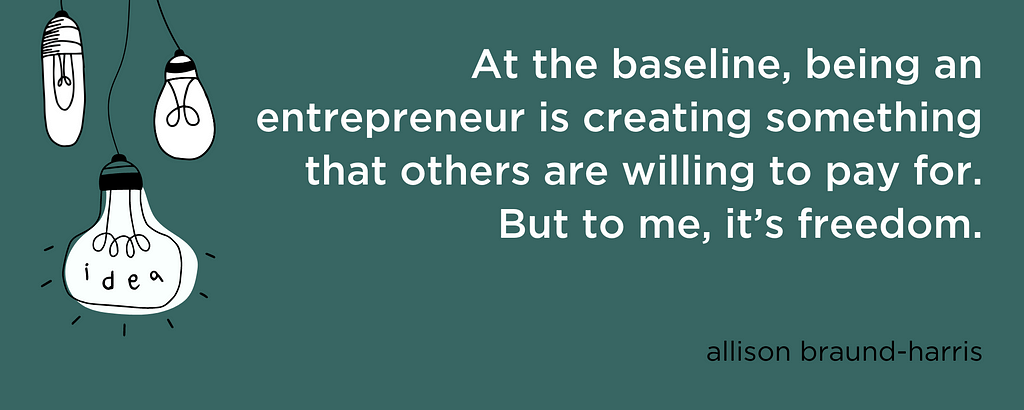
What does being an entrepreneur mean to you?
At the baseline, being an entrepreneur is creating something that others are willing to pay for. But to me, it’s freedom. Much of my life has been spent developing concepts and products for other companies, and it was tough watching my work get tainted with corporate bureaucracy or worse. Being an entrepreneur means that I can grow Hardly into my vision: less burnout and more balance in the world. Workplaces that fit the individual’s needs and vice versa.
What’s a resource or tip that’s helped you develop as a founder and move your business forward?
Never stop customer discovery! There are times when you will be more focused on customer discovery, but it never stops. Listening and observing have to become constant habits.
What’s next? How can our readers help you?
Love your job? Or on the hunt for a new one? We need your help! We are looking for people to take our culture assessment. All answers are anonymous, and no individual answers will ever be public. We want to know how your values ladder up to the broader workplace. Go to https://hardly-work.com/ to take the assessment. And of course, if you have any thoughts on work-life balance, culture fit, hiring, we’d love to talk! Please feel free to email me at allison@hardly-work.com and we can set up a time.
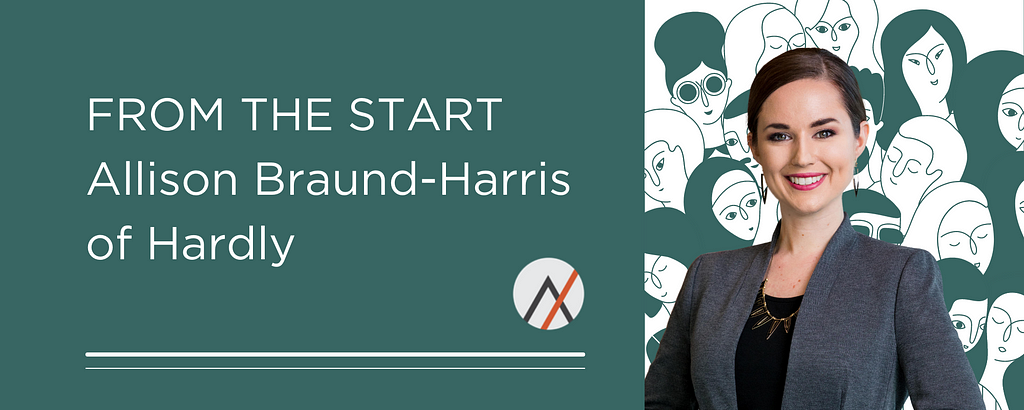
Learn more about Hardly.
Visit: https://hardly-work.com/
Connect with us
Learn more about Ascender: https://ascenderpgh.com/
Sign up for our newsletter or send us a note: info@ascenderpgh.com
Follow us: Twitter — Facebook — LinkedIn — Instagram
From fledgling tech companies, healthcare innovators, and nonprofits to makers, creators, services and shops, Ascender is for Pittsburgh’s entrepreneurs. We help businesses of all types in the Pittsburgh region start and build a business through education and connectivity. See how Ascender can help you.
ALLISON BRAUND-HARRIS was originally published in Ascender on Medium, where people are continuing the conversation by highlighting and responding to this story.
